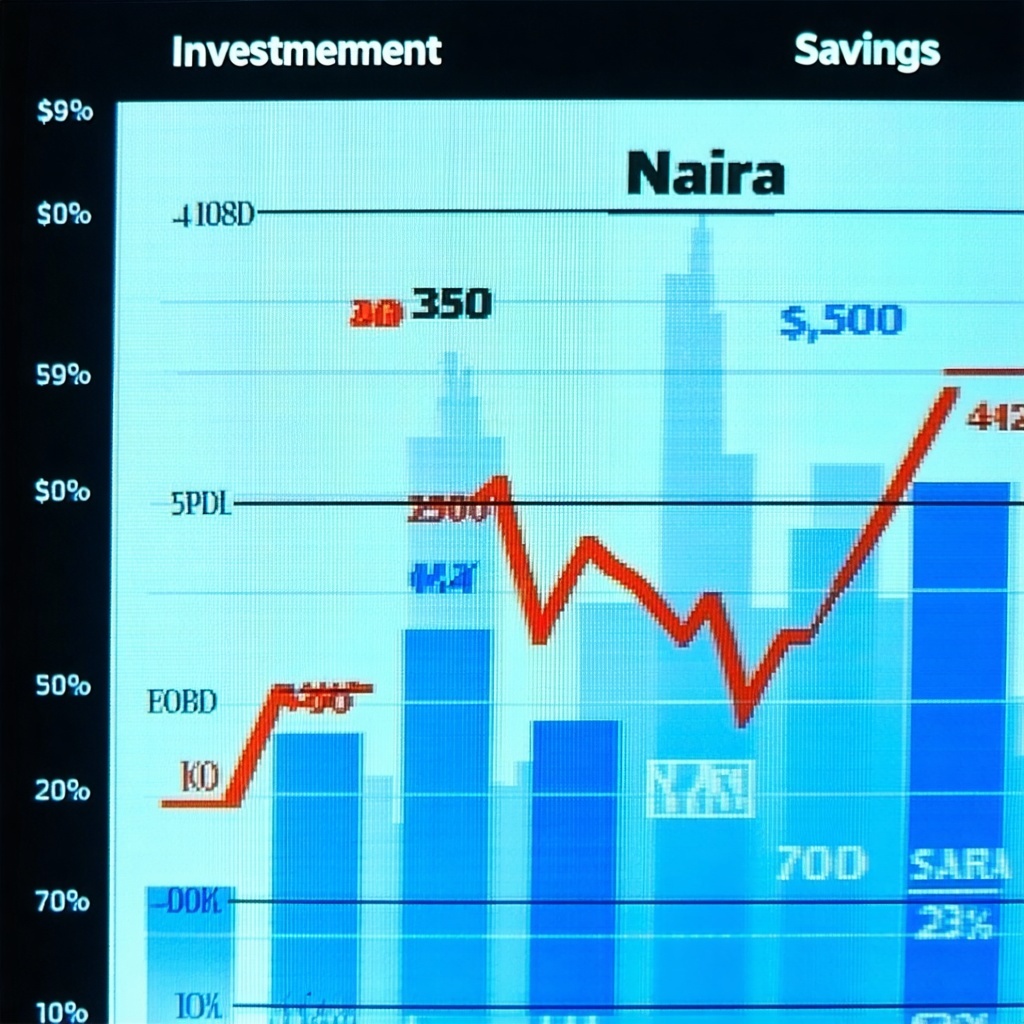
How Inflation Is Quietly Eating Your Savings (And Where to Move Your Money)
Author Eyitemi Efole
Inflation is a silent thief. It doesn't snatch your money overnight, but gradually erodes your purchasing power. In Nigeria, this erosion is particularly severe. As of April 2025, the inflation rate stands at 23.71%, with food inflation at 21.26%.
Consider this: a bag of rice that cost ₦40,000 last year now sells for over ₦65,000. Transportation costs have also surged, with commuters paying double for the same routes.
Understanding inflation is crucial for safeguarding your financial future. Let's delve into what inflation means in the Nigerian context and how you can protect your hard-earned money.
Understanding Inflation in the Nigerian Context
Inflation refers to a sustained increase in the general price level of goods and services. In Nigeria, several factors drive this phenomenon:
- Exchange Rate Fluctuations: The naira's depreciation against major currencies makes imports more expensive.
- Government Policies: The removal of fuel subsidies and tax changes has led to increased costs for businesses and consumers.
- Supply Chain Disruptions: Insecurity and infrastructural challenges hinder the smooth distribution of goods, especially agricultural produce.
- Money Supply and Fiscal Spending: An increase in money supply without a corresponding rise in goods and services leads to inflation.(Reuters)
While official statistics report a 23.71% inflation rate, many Nigerians feel the impact is much higher, especially when it comes to essential items like food and transportation.(proshare.co)
The Impact on Your Savings
Keeping money idle in savings accounts can be detrimental:
- Low Interest Rates: Traditional savings accounts offer interest rates that are significantly lower than the inflation rate, leading to a loss in real value.
- Reduced Purchasing Power: What you can buy today with ₦100,000 may cost ₦130,000 or more in a year.
- Psychological Impact: Watching your savings stagnate or decline in value can be discouraging and may deter future saving efforts.
To illustrate:
|
Year |
Inflation Rate |
Value of ₦100,000 |
|
2023 |
20% |
₦80,000 |
|
2024 |
25% |
₦60,000 |
|
2025 |
23.71% |
₦45,000 |
Assuming the money is kept in a savings account with negligible interest.
Where to Move Your Money to Combat Inflation
To protect your savings from inflation, consider the following investment options:
A. Fixed Income Investments
- Treasury Bills and Bonds: Government securities that offer fixed interest rates.
- Commercial Papers and Corporate Bonds: Issued by companies to raise capital, offering higher returns but with increased risk.
Pros:
- Relatively low risk.
- Predictable returns.
Cons:
- Returns may still lag behind inflation.
- Early withdrawal penalties.
B. Real Estate
- Property Investment: Purchasing land or buildings for rental income or resale.
- Real Estate Investment Trusts (REITs): Investing in a portfolio of properties managed by professionals.
Pros:
- Tangible asset.
- Potential for capital appreciation.
Cons:
- High initial capital requirement.
C. Equities (Stocks)
- Nigerian Stock Exchange (NGX): Investing in shares of publicly listed companies.
- Mutual Funds and ETFs: Pooled investment vehicles offering diversification.
Pros:
- Potential for high returns.
Cons:
- Market volatility.
- Requires market knowledge.
D. Commodities
- Precious Metals: Investing in gold or silver as a store of value.
- Agricultural Commodities: Investing in products like cocoa or palm oil.
Pros:
- Hedge against inflation.
- (MarketForces Africa, Reuters)
Cons:
- Price volatility.
- Storage and security concerns.
E. Dollar-Denominated Assets
- Domiciliary Accounts: Holding foreign currency to hedge against naira depreciation.
- Foreign Investments: Investing in international stocks or bonds.
Pros:
- Protection against local currency devaluation.
- Access to global markets.
Cons:
- Regulatory constraints.
- Currency conversion costs.
F. Alternative Investments
- Agribusiness: Investing in the agricultural value chain.
- Small and Medium Enterprises (SMEs): Providing capital to growing businesses.
Pros:
- High return potential.
- Supports local economy.
Cons:
Practical Steps and Considerations for Nigerian Investors
- Assess Risk Tolerance: Understand your comfort level with investment risks.
- Diversify Investments: Spread your investments across different asset classes to mitigate risk.
- Start Small: Begin with manageable amounts and increase as you gain confidence.
- Seek Professional Advice: Consult financial advisors for tailored investment strategies.
- Understand Tax Implications: Be aware of taxes associated with different investments.
- Adopt a Long-Term Perspective: Investing is a marathon, not a sprint.
Inflation is silently eroding the value of your savings. However, by proactively exploring and engaging in various investment avenues, you can safeguard and even grow your wealth. Empower yourself with knowledge, diversify your investments, and take decisive steps today to secure your financial future in Nigeria's challenging economic landscape.
About Author

Eyitemi Efole
Eyitemi Efole is exploring the marketing field, with a particular interest in brand management, strategy, and operations. She is keen on understanding how brands build trust and connect meaningfully with their audience.







.jpeg?width=352&name=OIP%20(3).jpeg)


.jpg?width=352&name=Nigerian%20Govt%20External%20Debt_How%20Does%20This%20Affect%20You%201%20(1).jpg)